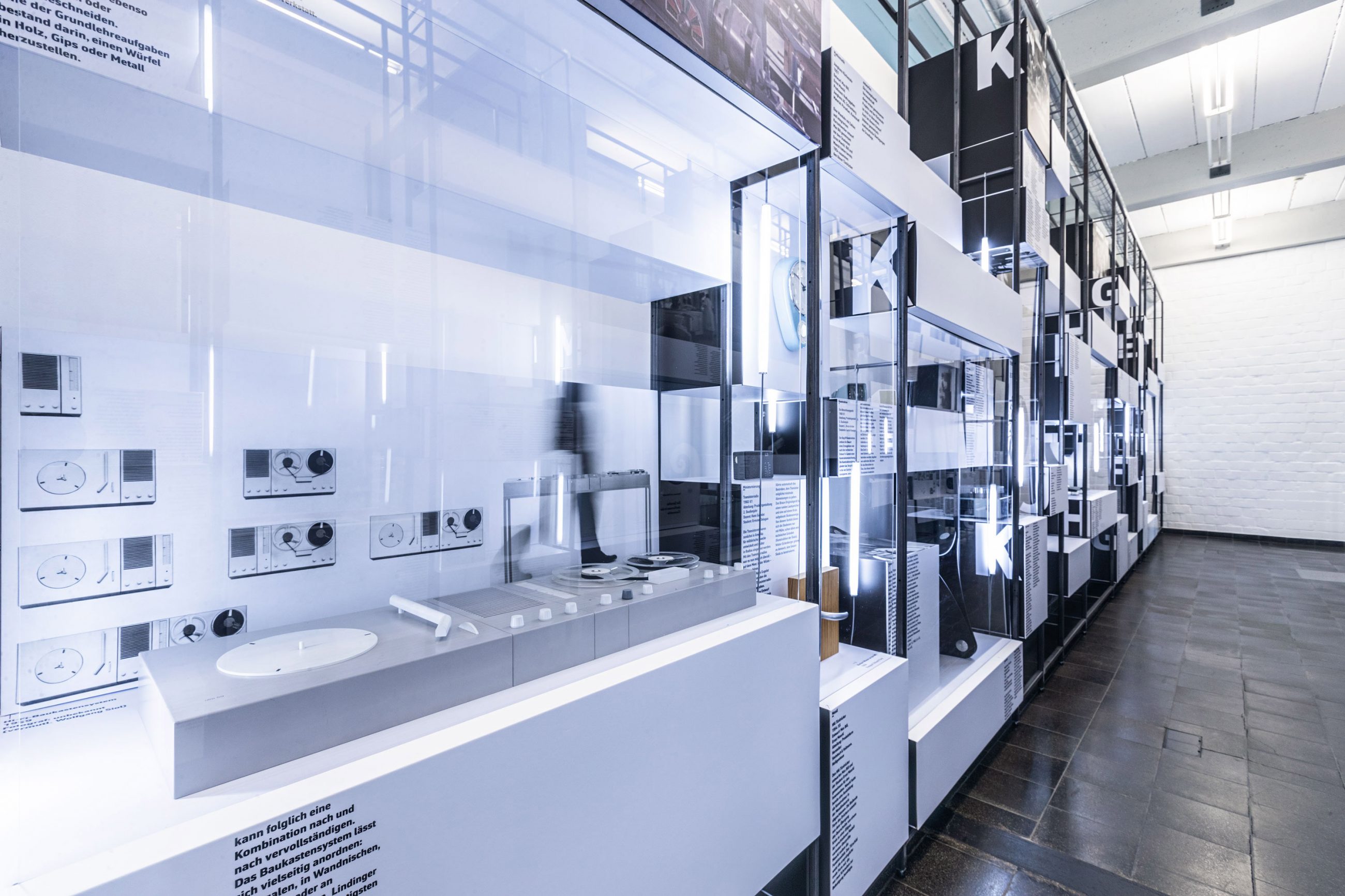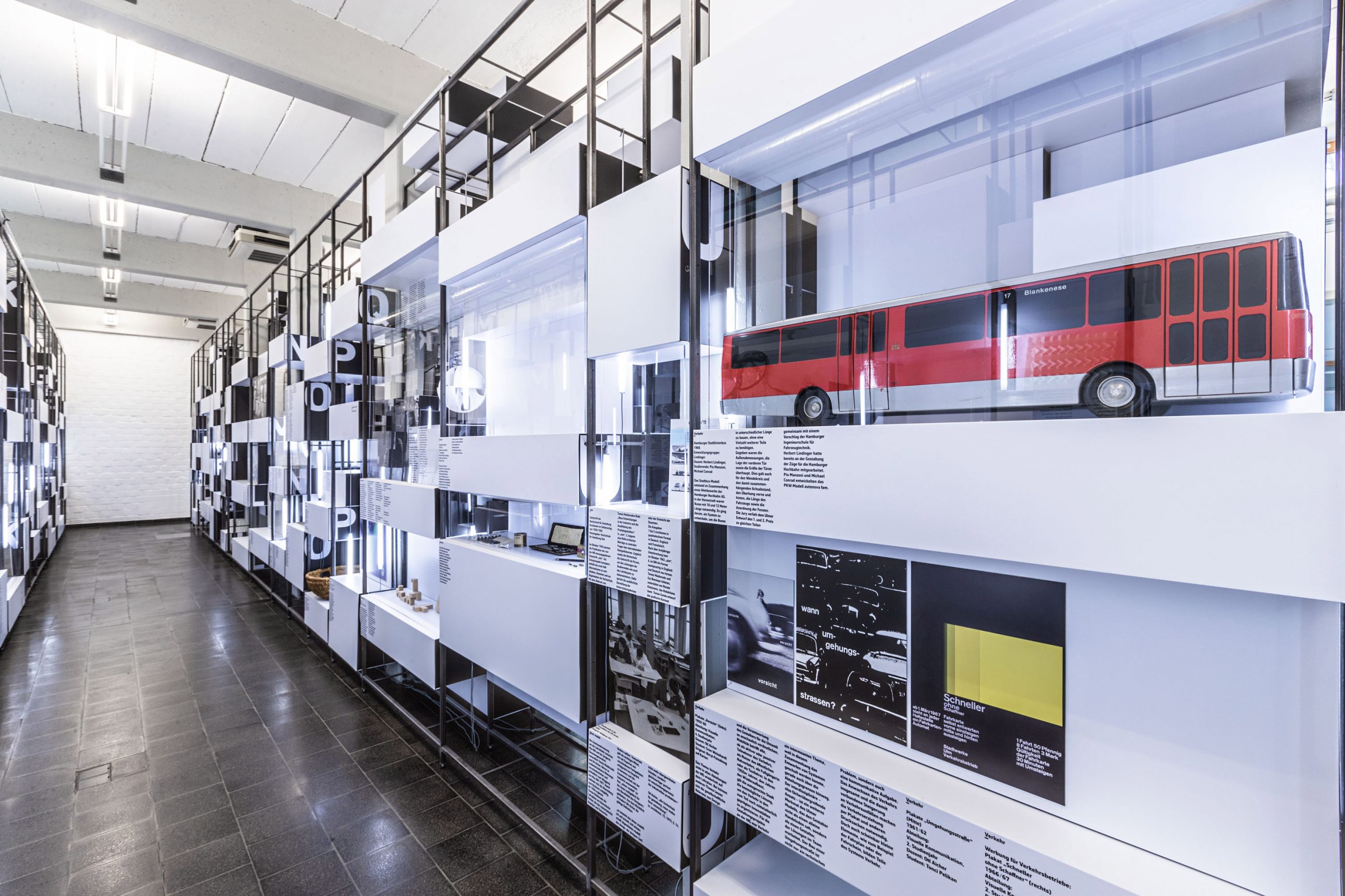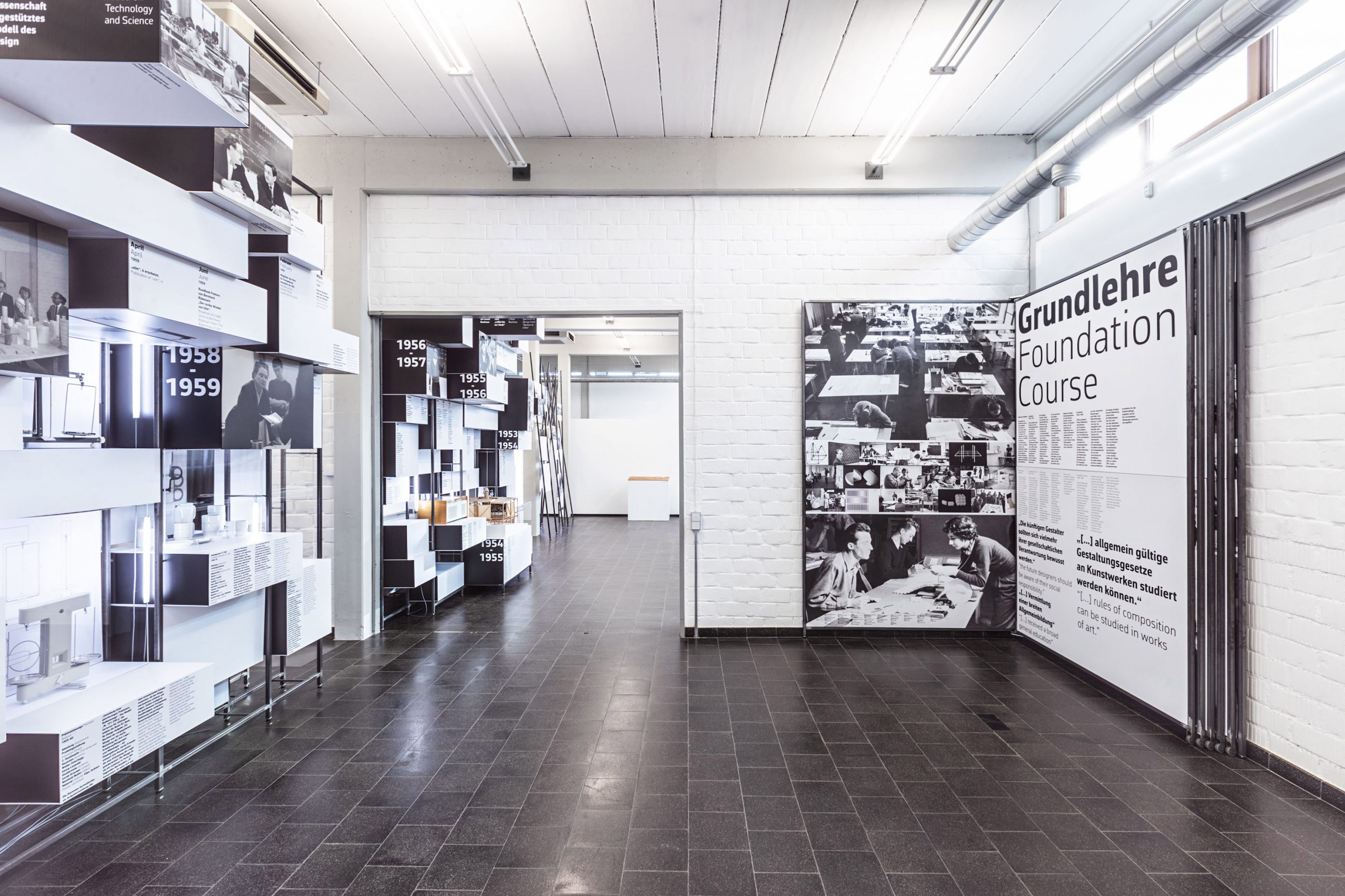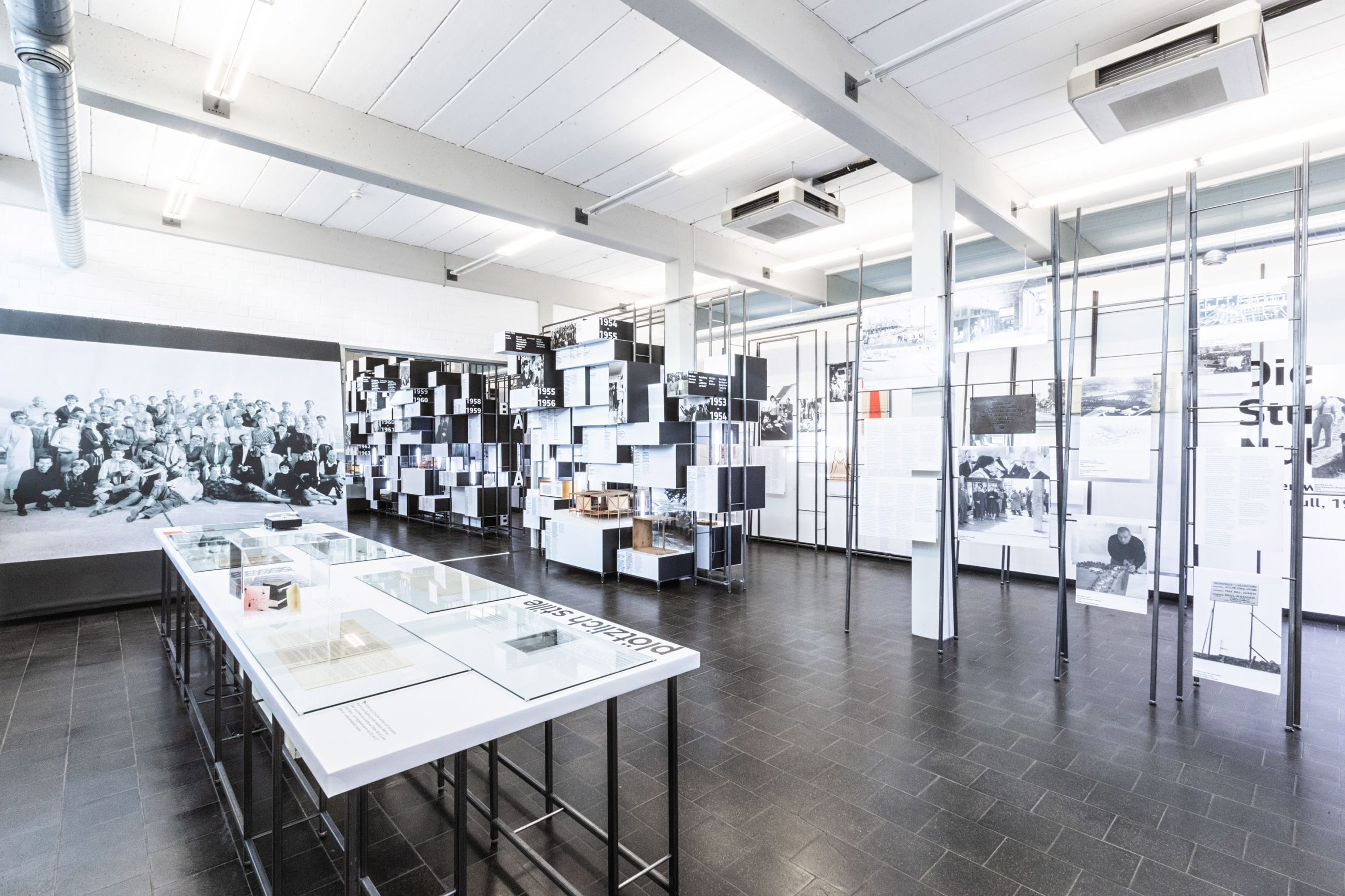Research
The HfG Archive regularly initiates and supports research projects dealing with the history of the Ulm School of Design.
The HfG Archive regularly initiates and supports research projects dealing with the history of the Ulm School of Design.
Tomás Maldonado taught at the HfG Ulm from 1954 to 1967 and had a decisive influence on the school’s program. The “Designer in Residence” scholarship, awarded for the third time in 2023 by the HfG Archive in collaboration with the HfG Ulm Foundation, was dedicated to Maldonado’s work as a design theorist.
Tomás Maldonado was born in Buenos Aires, Argentina, on April 25, 1922. With his work at the Ulm School of Design and his essays and lectures written at the time, Tomás Maldonado made a significant contribution to the HfG leaving the Bauhaus as a role model behind and actively contributing to the development of the profession of modern industrial designer.
Little known in the Federal Republic of Germany, Tomás Maldonado received numerous awards and is still highly regarded in Italy and South America in particular for his writings and his many years of academic work. He died in Milan in 2018 at the age of 96.
The 2023/2024 scholarship holder was Jan Sagasser. Born in 1997, Sagasser studied product design at the Schwäbisch Gmünd University of Art and Design. Following a research-oriented design approach, he deals with topics relating to the ecological compatibility of products and the socio-cultural changes required for a sustainable transformation of consumer awareness. Together with his project partner Raphael Jung, he was recently awarded the Federal Ecodesign Prize by the Federal Environment Agency for his work on the product design of resource scarcity.
Maldonado’s essay “Environment and Revolt” from 1972 was the starting point for his engagement with Tomás Maldonado as part of the designer-in-residence scholarship at the HfG Archive. As this in turn only marked the beginning of Maldonado’s work in the field of environmental design, which was to be the focus of the rest of the project, extensive research followed in which the most diverse fields that Maldonado had dealt with in his long career as an intellectual were examined and reflected upon.
The findings that emerged from this research should provide a basic understanding of Maldonado’s thinking in the field of environmental design and illustrate the relevance of his approaches to the current environmental discourse.
Between 1955 and 1967, the HfG Ulm designed four exhibitions that attracted a great deal of attention regionally, nationally and internationally, most recently at the World’s Fair in Montréal.
In this research project, the material available in the HfG-Archiv served as a basis for addressing questions of design in research in the humanities and social sciences. Here, the HfG can be described as a pioneer.
Two dissertations, the exhibition HfG Ulm: Exhibition Fever and a project website were produced as part of the project.
Funded research project within the “Research in Museums” initiative of the Volkswagen Foundation
He studied product design and strategic design at the HfG Schwäbisch Gmünd. In his studies he dealt with questions of sustainability and the justifiability of design in non-scientific contexts. His work is located at the interface between design, strategy and research.
For the second time this year the HfG-Archiv had announced the scholarship “Designer in Residence”: three months of living and working on the campus of the former Hochschule für Gestaltung and in the HfG-Archiv.
With the program “Designer in Residence” the HfG-Archiv wants to bridge the gap between the historical School of Design and current viewpoints of design. Based on the HfG’s thoughts on how the design process could be systematized and scientifically accompanied, this year’s scholarship holder Simon Hettler from Munich has dealt with this topic over 50 years after the closure of the Ulm School of Design. —› more
Born in Montreal, Olivia Daigenault Deschênes graduated from the Master of Architecture at the University of British Columbia, Vancouver, Canada in 2018 and currently works as an intern architect in Montreal. She holds a bachelor’s degree in architecture from the University of Montreal (2015) and completed a semester abroad in 2017 at Lund University, Sweden.
Olivia Daigenault Deschênes is most interested in interdisciplinary practice of design, at the intersection of art, architecture and critical thinking. Passionate about gender studies and feminist theories, Olivia seeks to understand multiple ways of doing feminism in architecture and design. In her practice, she explores architectural design methods as potential tools for activism and critical feminist knowledge.
In fall 2018, Olivia Daigenault Deschênes was invited to join the first Residency by the HfG-Archiv Ulm, Stiftung Hochschule für Gestaltung HfG Ulm and Prof. Dr. em. Uta Brandes, theme specific jury member.
“Show me how you eat and I will tell you who you are”:
What does it say about us, how we eat and with what we eat? Apart from the fact that there are various table cultures in the world, eating is an activity with which we ‘perform’ social roles, especially gender roles.
Inspired by the daily lunch in the former Ulm School of Design canteen and viewing it from a feminist-critical perspective, Olivia Daigneault Deschênes studied the photographic collections and archival material in relation to the subjects of seating and cutlery design, as well as the architecture of the Bill canteen. The results of her investigations are studies, performances, drafts and models of applied design research, and not functional design solutions – with regard to gender-specific role behaviour, they reveal, culminate in, and even caricature stereotypical expectations. The results were presented in the special exhibition “Nicht mein Ding – Gender im Design” at the HfG-Archiv.
Personal Recap
“Living and working at the HfG-Ulm complex for three months allowed me to pursuit my reflection on feminism and architecture in an inspiring environment. Interested in developing ways to use design to unfold manifestations of patriarchy in the everyday life, I decided to focus on eating and its relation to gender. I was most inspired by Max Bill’s design of la Mensa. My project ‘Show me how you eat, I tell you who you are’ explores critical thinking and performance as design methods towards a feminist critical practice.” Olivia Daigneault Deschênes
Always up to date! With our free newsletter we are happy to inform you about our current exhibitions, events and our extensive range of art education, as well as much more.
Register now


